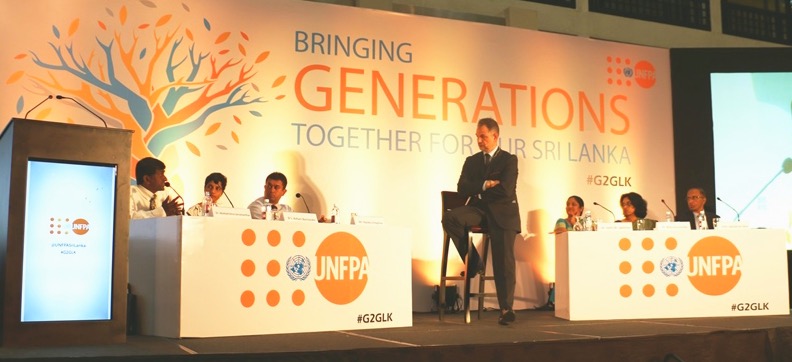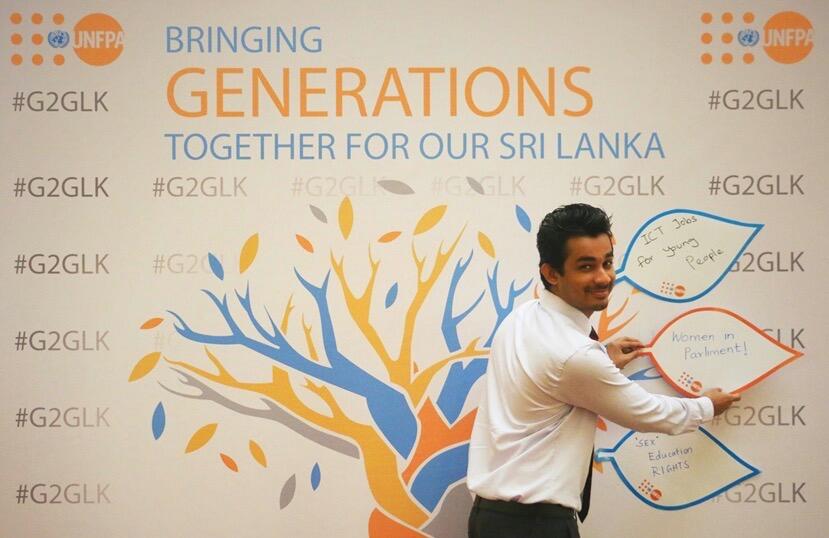Colombo – Leaders of all ages came together to help Sri Lanka chart the way to middle income status and make the most of the contry's large working age population at a landmark forum today.
Sri Lanka stands to gain from a ‘democratic dividend,’ in which, if good policies and actions are implemented, huge socio-economic gains can be reaped from a period where there are more people of working age (between 15 and 64) than people under the age of 14 or over 65.
“With such rapidly shifting population dimensions, there is a need for continuous research and evidence to formulate short, medium, and long term development strategies which analyse and document demographic shifts, “ said Alain Sibenaler, the United Nations Population Fund’s (UNFPA) Representative in Sri Lanka and the Maldives.
“Making information and data accessible to the public is a first step towards building awareness on trends, and highlighting gaps that need to be addressed for Sri Lanka to benefit from development opportunities.”
The third in a series of UNFPA’s ‘Generation to Generation’ (G2G) dialogues, titled ‘Shifting Demographics: Development Opportunities for Sri Lanka,’ brought government officials, diplomats, civil society representatives, academic and business leaders, industry experts, and the media together to tackle education, labour and fertility in the Sri Lanka’s development.
Three thematic reports, based on statistics from the country’s 2012 National Population and Housing Census, were launched alongside the event. Dr. A.J Satharasinghe, Director-General of Sri Lanka’s Department of Census and Statistics, said he “hoped these reports would be used as reference guides and tools by policymakers and decision makers in the country.”
Sri Lanka needs to act fast to secure the strongest socio-economic gains from the current working-age bulge as the nation is rapidly aging, explained UNFPA’s Sibenaler. Leading demographers are at odds over how long the dividend will last. Some say to 2037, others say it will end as soon as 2017.
"This is why it is crucial that policy-makers have access to evidence based data that can be used in policies to help prepare for a growing shift in population dynamics,” noted UNFPA’s Sibenaler.

Panelists at UNFPA's third Generation to Generation dialogue in Colombo, Sri Lanka.


